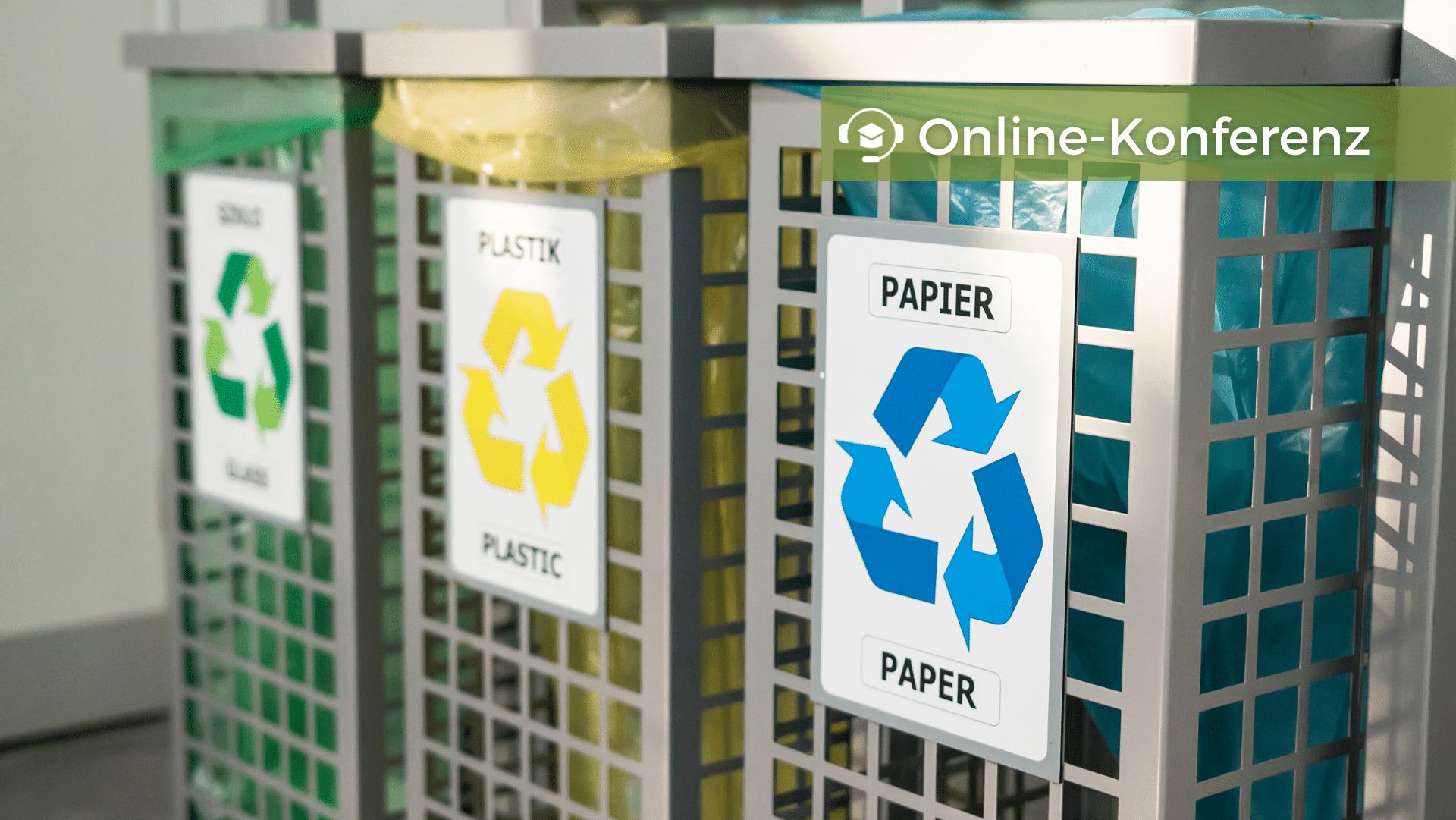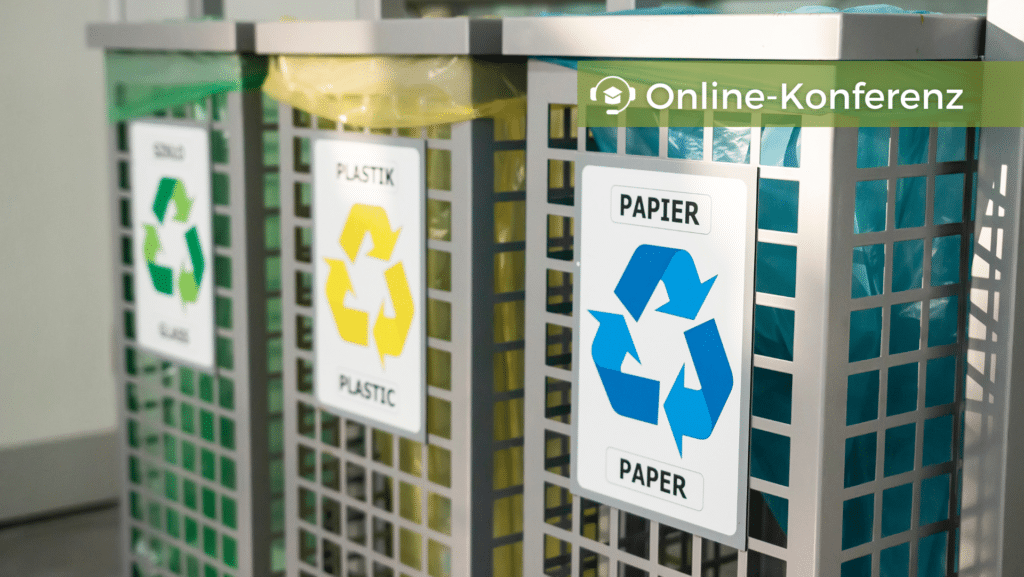State Aid for Regional Aid and Infrastructure
30.05.2024 - 31.05.2024 | Marseille

Delve into the intricacies of State aid, from its general prohibition under EU treaty rules to assessing provisions in your funding measures. Our experts will navigate you through key concepts and exemptions, while fostering interactive discussions with colleagues from across…
...mehr lesen
Auch in diesem Jahr werden namhafte Experten auf dem Gebiet des deutschen und europäischen Abfallrechts in fachlich fundierten Vorträgen die zentralen Fragestellungen des Rechtsgebietes vorstellen. Sie beleuchten die neuesten Entwicklungen, berichten über ihre Erfahrungen und zeigen mögliche Handlungs- und Lösungswege…
...mehr lesenSummer Course: Public Procurement from A to Z
22.07.2024 - 24.07.2024 | Lake Como

Our Summer Course will give you a comprehensive overview of the Essentials of Public Procurement and enhance your knowledge on Public Procurement Proceedings in Theory, applying public procurement rules in different sectors as well as covering topics such as E-procurement, Sustainable…
...mehr lesenZeitschriften
The First Issue of AIRe: Introducing a New Platform for AI Experts Worldwide
The inaugural issue of the Journal of AI Law and Regulation (AIRe) is now available […]
UWP 4/2023 jetzt verfügbar
Michael Suhr berichtet über die wesentlichen Neuerungen und Herausforderungen der Novellierung der Industrieemissionsrichtlinie. Dabei zeichnet […]
EStAL 1/2024 Out Now
Issue 1/2024 of the European State Aid Law Quarterly (EStAL) is now online! In the Editorial, […]
CCLR 3/2023 Out Now
Issue 3/2023 of the Carbon and Climate Law Review is out now. The issue features […]
StoffR 1/2024 jetzt verfügbar
Anlässlich des 20-jährigen Bestehens der Zeitschrift für Stoffrecht wirft der einführende zweiteilige Beitrag „20 Jahre […]
EFFL 2/2024 Out Now
Issue 2/2024 of the European Food and Feed Law Review is now available! This issue […]
EHPL 3/2023 Out Now
The third issue of the European Health & Pharmaceutical Law Review in 2023 is now […]
EDPL 4/2023 – The Future of Privacy
The latest issue of the European Data Protection Law Review (EDPL) is now available! We […]
AbfallR 1/2024 jetzt verfügbar
Die neue Ausgabe 1/24 der AbfallR enthält einen bunten Strauß von Aufsätzen zu Einzelfra-gen rechtlicher […]
EPPPL 1/2024
Issue 1/2024 of the European Procurement & Public Private Partnership Law Review (EPPPL) is now […]
CoRe 1/2024 Out Now
Issue 1/2024 of European Competition and Regulatory Law Review – CoRe is now online! In […]
EurUP 1/2024 jetzt verfügbar
Die erste Ausgabe der EurUP in 2024 widmet sich u.a. dem Gesetz zur Änderung des […]
ICRL 1/2024 Out Now
Issue 1/2024 of the International Chemical Regulatory and Law Review is out now! This issue […]
Latest Blog Posts
Pricing of Access to Infrastructure for the Treatment of Waste Water
Introduction It is not unusual for EU courts to refer to the Commission’s 2016 Notice […]
Awards by Arbitration Tribunal
Introduction In an unusual judgment, the Court of Justice found on 14 March 2024, in […]
An Innovative Risk-Sharing Tool for the Support of an LNG Terminal
Introduction The Commission, in decision SA.102163, authorised State aid for the construction of a terminal […]
The Court of Justice Conflates Objective Justification with Policy Objective, in the context of Public Support of Green Electricity
Introduction Suppose a Member State subsidises the installation of solar panels on the roof of […]
Applying the Funding Gap Method to an Important Project of Common European Interest – Part II
Introduction On 28 February 2024, the General Court delivered an important judgment in case T-390/20, […]
Applying the Funding Gap Method to an Important Project of Common European Interest – Part I
Introduction On 28 February 2024, the General Court delivered an important judgment in case T-390/20, […]
The Apple App Store – A New Kind of Hallmark Case
After almost three years since the Commission sent Apple its statement of objections, which was […]
Public Infrastructure and State Prerogatives
Introduction On 28 February 2024, the General Court delivered two important judgments on the presence […]
State Aid and Arbitration of Disputes
Introduction On 22 February 2024, the Court of Justice [CJEU] delivered its judgment in joined […]
A Large Regional Investment Project in Spain
Introduction Most State aid to “large” investment projects is granted by the Member States in […]
Aktuelle Veranstaltungen
Alle Veranstaltungen
UWP-Forum Umweltrecht – Schwerpunkt Immissionsschutzrecht

Control and Audit in Financial Management

Economic Tools for State Aid Analysis

Public Procurement Requirements for ESI Funds

Anti-Fraud Skills Lab: when History meets Innovation

EStALI Forum: The Future of State Aid Enforcement

Free Expert Panel: EU Industrial Policy? A Stakeholders Discussion

Managing and Auditing the Closure of 2014-2020 Operational Programmes

Medical and Pharmaceutical Procurement

State Aid for Regional Aid and Infrastructure

EStALI Seminar

Technical Assistance for ESI funds

Digitaler Düsseldorfer Abfallrechtstag

State Aid Procedures

Master Class in Sustainable Public Procurement

Summer Course: Irregularities and Fraud in ESI Funds

Simplified Cost Options for ESI Funds

Fundamentals of State Aid

State Aid and Public Procurement for ESI Funds

Summer Master Class – “State Aid Uncovered” with Prof. Dr. Phedon Nicolaides

Anti-fraud and Corruption Game: Port Authority

Summer Course: Public Procurement from A to Z

Summer Course: State Aid – Concept, Principles, Exemptions & Guidelines

Master Class: Public Procurement for Utilities and Concessions Contracts

The Monte Carlo Game: Anti-Money-Laundering Training

Chemikalienrecht außerhalb der EU

State Aid for Transport

Performance Audit and Control of ESI-Funded Projects

Innovation in Selection, Verifications and Audits of EU Funds (IT & Data Analysis; the new 2024 cases)

State Aid Requirements for SGEI

Indicators, Monitoring and Evaluation of ESI Funds

Fundamentals of EU Public Procurement

18th European Food and Feed Law Conference

State Aid and Financial Instruments under Structural Funds

State Aid for R&D&I

Essentials of e-Procurement and Implementation of e-Government Concepts

EStALI Conference

The Effect of AI on the Cybersecurity of Personal Data (GDPR 2.0)

State Aid from A to Z

Innovation in Public Procurement & Innovation Partnerships

Winter Master Class – “State Aid Uncovered” with Prof. Dr. Phedon Nicolaides
Melden Sie sich für unseren Newsletter an, um regelmäßig über unsere kommenden Konferenzen, Lexxion Trainings, Vor-Ort-Workshops und die neuesten Veröffentlichungen von Lexxion informiert zu werden.
Verpassen Sie keine Neuigkeiten und abonnieren Sie unseren kostenlosen Newsletter. Jetzt anmelden!
